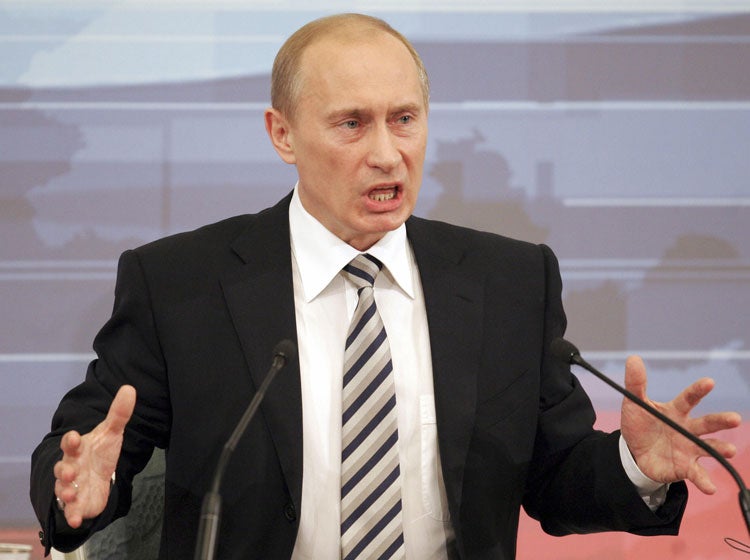US and Ukraine challenge Russia on Nato expansion

Your support helps us to tell the story
From reproductive rights to climate change to Big Tech, The Independent is on the ground when the story is developing. Whether it's investigating the financials of Elon Musk's pro-Trump PAC or producing our latest documentary, 'The A Word', which shines a light on the American women fighting for reproductive rights, we know how important it is to parse out the facts from the messaging.
At such a critical moment in US history, we need reporters on the ground. Your donation allows us to keep sending journalists to speak to both sides of the story.
The Independent is trusted by Americans across the entire political spectrum. And unlike many other quality news outlets, we choose not to lock Americans out of our reporting and analysis with paywalls. We believe quality journalism should be available to everyone, paid for by those who can afford it.
Your support makes all the difference.President Bush has thrown down the gauntlet to Russia and set the stage for a showdown with Europe by expressing public support for Ukraine and Georgia to become members of Nato,
Mr Bush said after talks with Ukraine's President, Viktor Yushchenko, that America "strongly supports" the former Soviet republic's bid for membership. "In Bucharest this week, I will continue to make America's position clear: we support Map for Ukraine and Georgia." Map refers to Nato's membership action plan for future members.
Nato itself is divided over whether to offer the two former Soviet republics a path towards Nato membership. France and Germany want to avoid antagonising Russia, which is opposed to Ukrainian and Georgian membership, and the26-member military alliance operates on the basis of political consensus.
Mr Bush said the outcome of the Nato meeting should not be prejudged, but the French Prime Minister said yesterday: "France will not give its green light to the entry of Ukraine and Georgia. We think that it is not the correct response to the balance of power in Europe, and between Europe and Russia."
Other states, however, are concerned about Russia – which is not a Nato member – having what amounts to a veto over Nato membership. Mr Bush said he had been assured by other Nato leaders "Russia will not have a veto over what happens in Bucharest. I take their word for it."
President Vladimir Putin, attending his last major international summit before he becomes prime minister next month, will hold talks in Bucharest with Nato leaders. Nine former members of the Soviet bloc are already Nato members.
Mr Putin's spokesman, Dmitry Peskov, warned Ukraine and Georgia that membership would "lead to additional tension". In a telephone briefing from the Kremlin with foreign reporters, he did not respond directly when asked about possible linkage between the membership issue and a dispute with America over plans to locate parts of a US missile defence shield in Poland and the Czech Republic.
Mr Bush, who is expected to discuss the missile shield with Mr Putin at their final summit in the Russian resort of Sochi next weekend, has rejected any trade-off.
Mr Peskov said Russia would prefer the US to shelve its deployment plans, but added: "We appreciate the effort from our American partners, and we are ready to continue our mutual search for the way out of this very complicated situation" which he said affected Russia's strategic and national security interests.
The Nato summit is expected to extend invitations to at least two countries – Albania and Croatia – to join the alliance. A third invitation had been expected for Macedonia. However, Greece repeated yesterday that it would veto Macedonia joining unless there was an agreement with Athens on the country's name.
There has been a dispute for 15 years over Macedonia which has the same name as a northern Greek province over which it is accused of having territorial claims. It has UN membership under the provisional name of the Former Yugoslav Republic of Macedonia.
Join our commenting forum
Join thought-provoking conversations, follow other Independent readers and see their replies
Comments